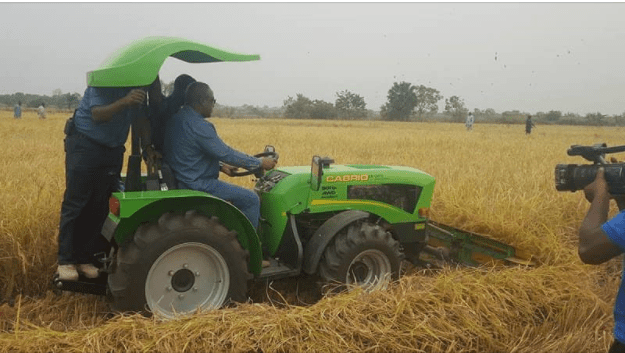A panel of agricultural experts has been convened to discuss the critical role of women in Ghana’s agricultural sector and the imperative need for technological advancements to ensure food sustainability.
Led by prominent figures in the field, the discussion highlighted the pivotal role of women in ensuring food sustainability and underscored the urgent need for innovative approaches to address longstanding challenges in the industry.
The interview was held on 3FM Sunrise Morning Show on March 28 with Helen Appiah-Ampofo as host.
CEO of the Chamber of Agribusiness, Anthony Morrison, emphasized the significant presence of women in Ghana’s agricultural industry, stating, “When it comes to agritech and gender activities, the data shows clearly the number of women we have in Ghana’s agricultural space. And it also behoves on us not only to increase the technology adaptation, but also the literacy rate, the last census showed clearly that we have more than 53% women in our space.”
Morrison highlighted the pressing issue of technological adaptation and literacy rates, noting that “most of our farmers still use substandard technology,” with over 93% relying on rudimentary methods.
Founder of the Agrihouse Foundation, Alberta Nana Akyaa Akosa, echoed Morrison’s concerns, emphasizing the lack of mechanization centers across all regions of Ghana.
Akosa lamented the reality that in some areas, farmers still resort to renting basic farming tools, hindering progress in agricultural innovation.
She underscored the importance of promoting women’s involvement in mechanization efforts, pointing out that “our education is building no barrier when it comes to embracing technology or mechanization.”
Supporting these observations, the CEO of Ahodwo Farms, Kofi Ansah, emphasized the challenges farmers face in accessing advanced farming technology and funding.
He highlighted the scarcity of technological farming inputs, citing the lack of automatic processing machines for staple crops like gari and cassava.
He stressed, “Mechanization of agriculture is equipment and software,” underscoring the multifaceted nature of the issue.
Despite the challenges, Morrison emphasized the positive strides made by some organizations, such as the GIZ’s Women in Gardening initiative, which trained over 5000 women in advanced agricultural techniques. He applauded such efforts as game-changers for the industry and emphasized the importance of developing curriculum and training programs tailored to the needs of women in agriculture.
Looking forward, Morrison urged stakeholders to focus on harnessing existing initiatives, such as the government-led Women in Agriculture program.
He emphasized the need for sustainability and collective action to drive meaningful change in the agricultural sector.
By Joselyn Kafui Nyadzi


